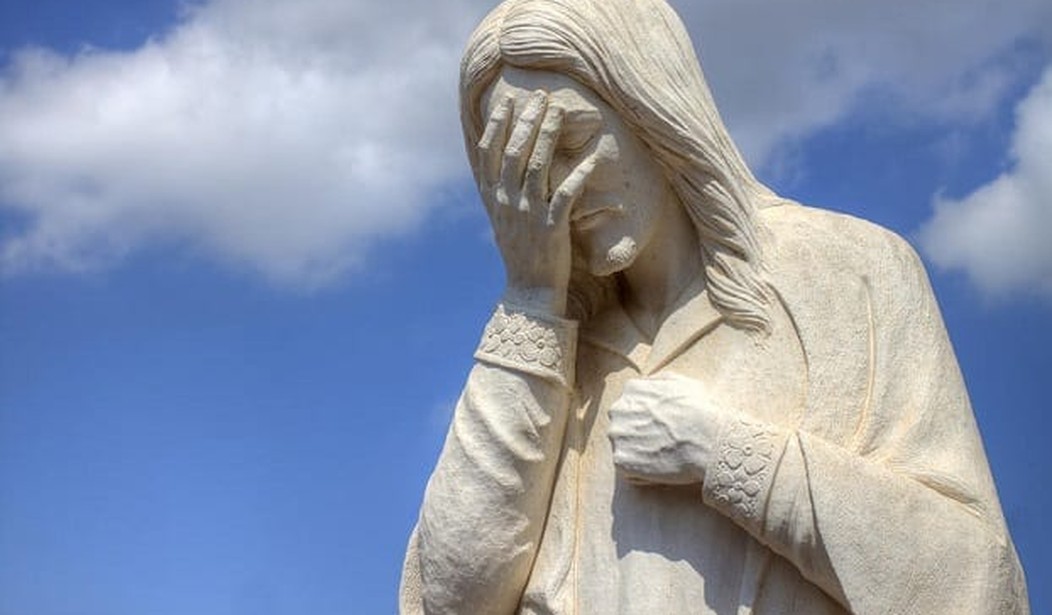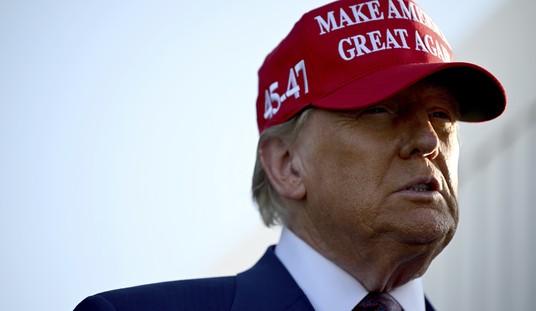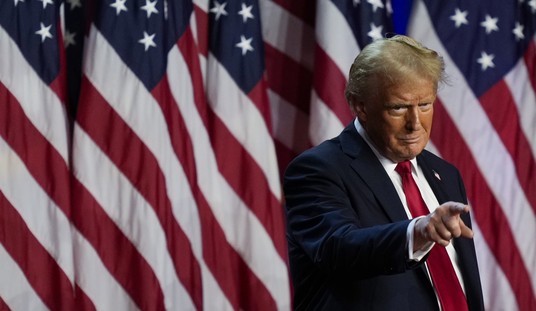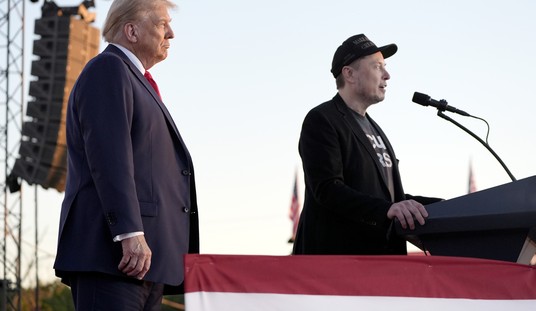I, as Dave Barry says, am not making this up.
Peter Beinart, a low wattage intellectual and devoted leftwing hack, writes an article in the National Journal called, un-ironically, The Cost of Disowning Jimmy Carter. Beinart, for reasons that remain obscure, has been on a jihad to rehabilitate Jimmy Carter as a role model for Democrat presidents. The only reason I can come up with is that he likes losing but I know a big-brain guy like Beinart is playing Seven Dimensional Backward Chess and I’m just not bright enough to see it.
By conventional Washington calculations, Obama’s shunning of Carter is shrewd, because the distance between the two men makes it harder for Republicans to link them. In giving the former president the 10-foot-pole treatment, however, Obama and his party have acceded to a narrative about Carter’s foreign policy that is wildly inaccurate and weakens Democratic foreign policy today. The principles that guided Carter three decades ago remain strikingly relevant. And by refusing to defend them, Obama makes it harder to defend his own.
SINCE CARTER LEFT the presidency, the hawkish critique of him has become a political cliché: He entered the White House with the naive belief that the United States could stop fighting the Cold War. The Soviets exploited that naivete to tilt the global balance of power in their favor. Near the end of his presidency, after the Soviet invasion of Afghanistan, Carter realized his foolishness and embraced a tougher line, but it was too late: The United States was losing the Cold War—until Ronald Reagan became president, built up America’s defenses, restored its morale, denounced the USSR as evil, and reversed history’s course.
There are elements of truth to this narrative. But its core contention—that under Jimmy Carter America was losing the Cold War—is nonsense.
To put it in perspective, Beinart wasn’t yet 9 years old when Carter and his killer rabbit policies were repudiated by the American people. They did it for a reason. He was a failure of epic proportions whose legacy of #FAIL is only now being challenged in any meaningful way. His assertion in the last paragraph is so blatantly dishonest, or stupid, that one doesn’t even know where to start. Suffice it to say he’s so wrong that Douglas “Wrong Way” Corrigan would give up his nickname if he were alive today. The reason the “conventional Washington calculations” see Carter and any association with him as being tantamount to wearing a giant “kick-me” sticker on your ass is very simple; it isn’t because Beinart, like some modern day Gnostic priest, has suddenly discovered a True Knowledge, it is because Carter was an abject failure in every facet of being a president.
The theory Beinart pushes is this
ALTHOUGH BARACK OBAMA won’t admit it, his foreign policy instincts and Jimmy Carter’s have much in common. Like Carter, Obama took office in the wake of a disastrous war. And like Carter, he has responded by attempting to discard the doctrine that underlay it. For Carter, the war was Vietnam and the doctrine was global containment. For Obama, it is Iraq and the “war on terror,” a term coined under George W. Bush that Obama pointedly ditched. Like Carter, Obama argued that this doctrine of permanent war burdened America’s economy and justified the violation of civil liberties at home and human rights abroad. Like Carter, he believes it damaged America’s worldwide reputation. And like Carter, he believes it spawned a heavy-handed interventionism that provoked nationalist backlashes overseas.
But perhaps most important, Obama, like Carter, believes he inherited a doctrine shaped by excessive fear. Where Carter told students at Notre Dame that American foreign policy should not be motivated by an “inordinate fear” of communism, Obama in May 2013 told an audience at the National Defense University that “we have to make decisions based not on fear but on hard-earned wisdom.” That wisdom, Obama argued, required recognizing that although al-Qaida’s spin-offs could still launch attacks, “these threats need not rise to the level that we saw on the eve of 9/11.” As a result, although America should make “persistent, targeted efforts to dismantle specific networks of violent extremists,” it need no longer fight a “boundless ‘war on terror.’ “
Where most sentient beings see indecision, vacillation and rank cowardice, Beinart sees unrecognized brilliance:
As ISIS rose last year, Obama’s critics pounced on these claims, suggesting that the group posed as great a threat as al-Qaida before 9/11, if not greater. “We’re in the most dangerous position we’ve ever been in as a nation,” [mc_name name=’Sen. James Inhofe (R-OK)’ chamber=’senate’ mcid=’I000024′ ] of Oklahoma told a local Fox affiliate. In National Review Online, [mc_name name=’Rep. Mike Pompeo (R-KS)’ chamber=’house’ mcid=’P000602′ ] of Kansas called ISIS “the most lethal and powerful terrorist group ever to have existed.”
Still, Obama has remained cautious. Even while announcing military action against ISIS last September, the president didn’t say the organization imperiled the American homeland. Only that “if left unchecked, these terrorists could”—my italics— “pose a growing threat beyond that region—including to the United States.” After the attacks on Charlie Hebdo in France, Obama said the U.S. would “remain vigilant” but warned, “We’ve got to make sure that we don’t overreact.”
This is how Beinart sees the current geopolitical landscape and why it needs more cowbell Carter:
Although Obama’s critics claim that terrorists and tyrants are on the march while the U.S. retreats, the truth—as in the Carter years—is largely the reverse. It’s not just the jihadists who are ideologically weak. Putin’s aggression has damaged his already vulnerable economy, turned most of Europe against him, and made Ukrainians more determined to be part of the West. By repressing internal dissent, backing Bashar al-Assad in Syria, and continuing its nuclear program, Iran has squandered the support it once enjoyed in the Arab world. The only U.S. competitor with real economic muscle and ideological appeal is China. But, ironically, perhaps because Republican elites value America’s economic ties to Beijing, China is the foreign policy subject on which conservatives most often give Obama a pass.
Beinart may be one of the three people in the world who see the current situation in this light. Most of the world sees a West in disarray, a failure by Obama to lead, and the West having its ass handed to it everywhere it is challenged… often without even a fight being offered.
In a moment of politicized hysteria, it’s not easy to make the case for optimism and calm. But doing so is crucial to avoiding the “dumb wars” that Barack Obama was elected to prevent. In that effort, Obama could help himself by reminding Americans of prior moments when seemingly mighty enemies turned out to be weaker than they looked, and when democratic capitalism, despite appearing to be in retreat, proved its resilience and appeal. If he needs help with the historical details, there’s a 90-year-old in Plains, Georgia, who would appreciate a call.
As a smarter man than me said,
I was mentally preparing the methodical dismantling of this exceptionally dim-witted Peter Beinart piece, but then I realized I was all wrong. The point is not to demolish it: the point is to endorse it. Peter Beinart is right: Democrats should reclaim the legacy of Jimmy Carter for themselves. They should say so often, and loudly, and deliberately at every opportunity. They should ask what Jimmy Carter would do, and they should act as Jimmy Carter would act, and they should tell everyone who will listen that they seek to be as like Jimmy Carter as they can. The name of Jimmy Carter should be constantly on their minds and lips, especially around the press, in public earshot, and at election time. When crisis strikes, they must declare their adherence to the spirit of Jimmy Carter. When they meet Vladimir Putin, negotiate with the Iranians, and reassure the allies, they should gaze serenely and say forthrightly they they are heirs to Jimmy Carter. They are Democrats. This is their legacy. This is their heritage. They are unafraid. And they are grateful that Peter Beinart — ace historian, policy visionary, electoral genius — has shown them the way.
Indeed. If the Democrats wish to embrace the Carter legacy then by all means we should encourage them.














Join the conversation as a VIP Member